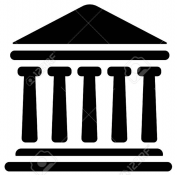The principle of separation of powers dictates that the legislature be headed by an individual different from head of the executive (often called president). However, in the practices of the PFDJ, which violates its own constitution, the President is not only the head of the executive and the only party, the President is also the chairperson of the legislature, the nominal National Assembly. In many democracies, the legislature is led by an individual, often called a speaker or a chairperson. Mainly, the speaker is the presiding officer and administrative head of the legislature. The speaker presides over the legislature, administers oath of office to new legislatures, engages in some leadership roles in committees. In many democracies, the Speaker temporarily replaces the head of the executive (the president) if the latter is not in that position because of death, severe illness or other things. In terms of political stature, the Speaker is as notable as the President. This account is a general description of the position of a speaker. Every country is, however, free to tweak and provide for a slightly different constitutional design.

1st Speaker
Brief bio focusing on qualifications. Example: MP1 is a human rights lawyer with proven track record in cause lawyering, a form of legal activism, involving the deployment of legal and non-legal technics in the pursuit of human rights and the resolution of violent political conflicts.

2nd Speaker
Brief bio focusing on qualifications. Example: MP1 is a human rights lawyer with proven track record in cause lawyering, a form of legal activism, involving the deployment of legal and non-legal technics in the pursuit of human rights and the resolution of violent political conflicts.
